Hãy nhập câu hỏi của bạn vào đây, nếu là tài khoản VIP, bạn sẽ được ưu tiên trả lời.

\(a+\dfrac{x+1}{\sqrt{x^2-x+1}}-\dfrac{3x+3}{\sqrt{x}}=0\) có nghiệm \(x=1\)
\(\Rightarrow a+\dfrac{2}{\sqrt{1}}-\dfrac{6}{\sqrt{1}}=0\Rightarrow a=4\)
\(4+\dfrac{x+1}{\sqrt{x^2-x+1}}-\dfrac{3x+3}{\sqrt{x}}=3\left(2-\dfrac{x+1}{\sqrt{x}}\right)+\left(\dfrac{x+1}{\sqrt{x^2-x+1}}-2\right)\)
\(=-3\left(\dfrac{\left(x-1\right)^2}{\sqrt{x}\left(x+1+2\sqrt{x}\right)}\right)+\dfrac{-3\left(x-1\right)^2}{\sqrt{x^2-x+1}\left(x+1-2\sqrt{x^2-x+1}\right)}\)
Rút gọn với \(\left(x-1\right)^2\) bên ngoài rồi thay dố là được

\(\lim\limits_{x\rightarrow1}\dfrac{\sqrt{3x^2+2}-\sqrt{4+x}}{x^2-1}=\lim\limits_{x\rightarrow1}\dfrac{\dfrac{3x^2-x-2}{\sqrt{3x^2+2}+\sqrt{4+x}}}{x^2-1}=\lim\limits_{x\rightarrow1}\dfrac{3x+2}{\left(x+1\right)\left(\sqrt{3x^2+2}+\sqrt{4+x}\right)}=\dfrac{5}{2.2\sqrt{5}}=\dfrac{\sqrt{5}}{4}\).
Từ đó a = 5; b = 4 nên a - b = 1.

\(\lim\limits_{x\rightarrow+\infty}\dfrac{\left(1-\dfrac{1}{x}\right)^2\left(2+\dfrac{3}{x^2}\right)}{\dfrac{4}{x^4}-1}=\dfrac{2}{-1}=-2\)
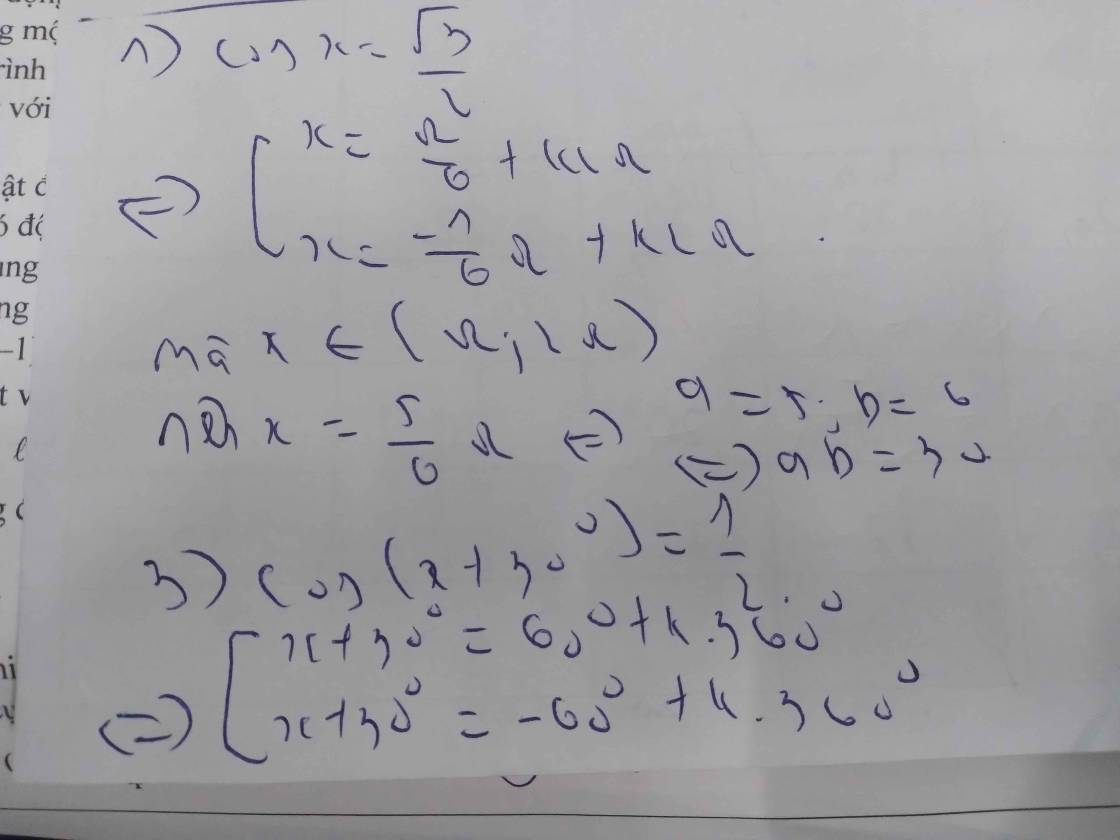
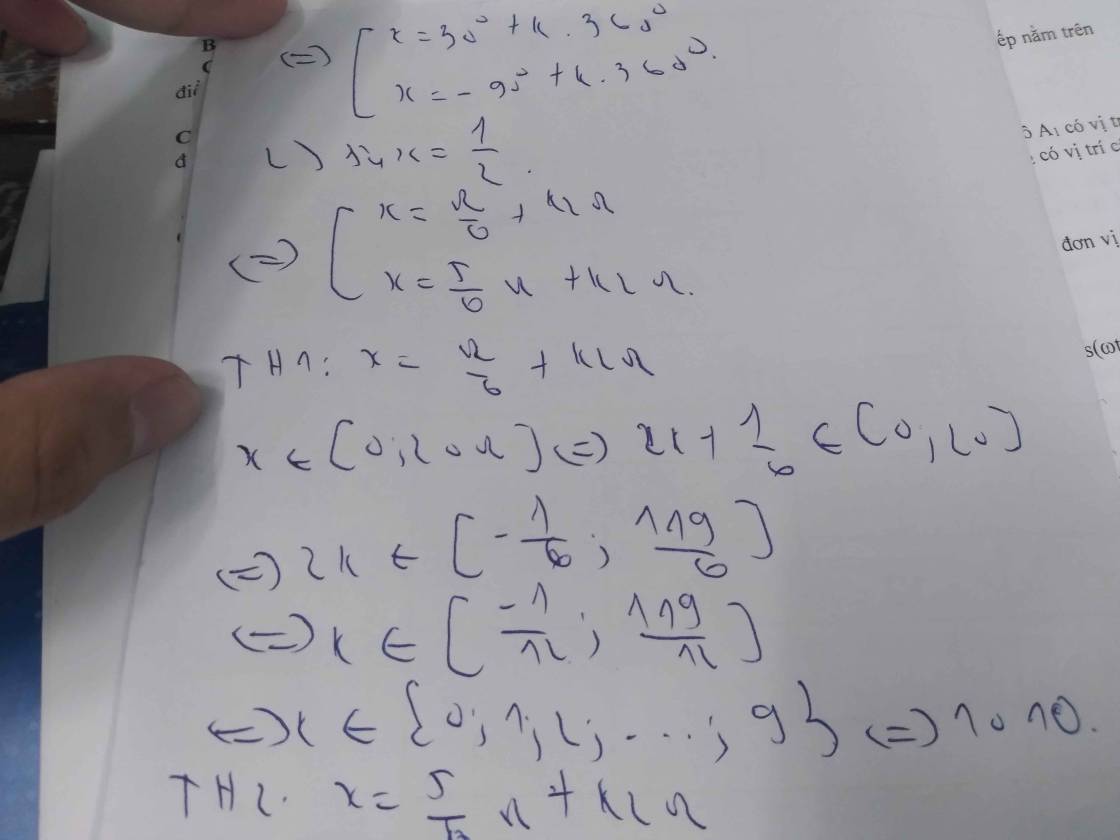
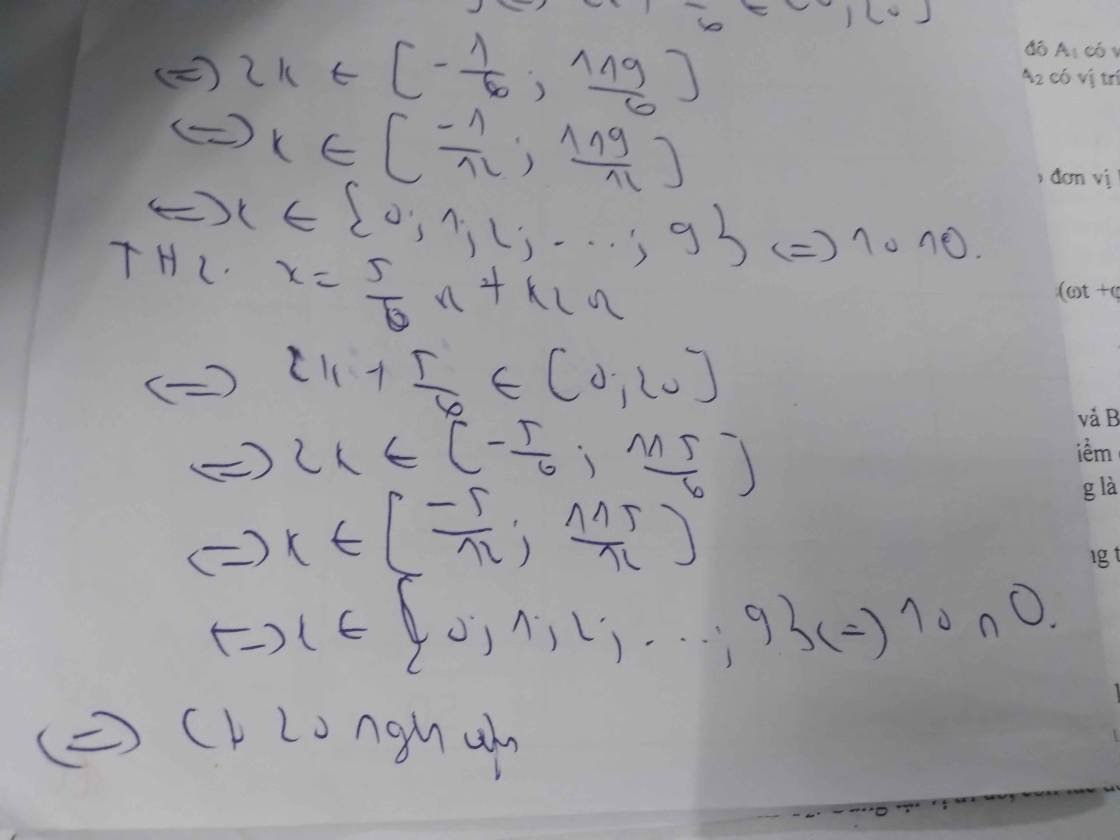
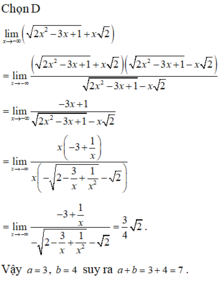

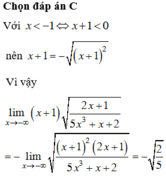
ĐÁP ÁN C